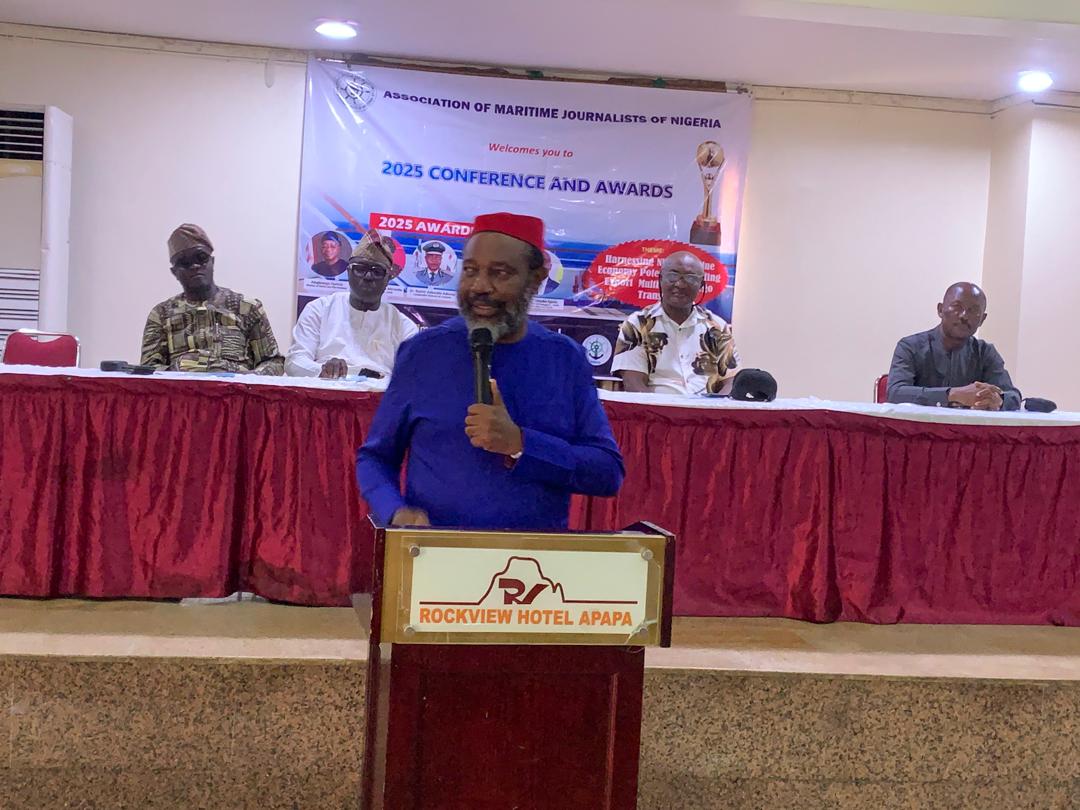The Head of Research at the Sea Empowerment and Research Centre (SEREC), Dr.Eugene Nweke, has highlighted the need for stronger collaboration, modernisation, and policy consistency to unlock Nigeria’s vast Blue Economy potential and reposition the maritime sector as a major driver of economic diversification.
Speaking at the 2025 Annual Conference and Awards Ceremony of the Association of Maritime Journalists of Nigeria (AMJON), Nweke noted that the maritime industry holds enormous opportunities for job creation, industrial development, and export expansion, but remains underutilised due to infrastructural and policy gaps.
According to Nweke, Nigeria’s vast maritime potential, spanning an 853 km coastline, 3,000 km of inland waterways, and a 200 nautical mile Exclusive Economic Zone, remains largely underutilised, contributing less than 1.5% to the regional maritime GDP.
Nweke emphasised that public-private synergy is essential to deliver measurable outcomes and proposed the establishment of a National Blue Economy Council (NBEC) and a Public Private Blue Economy Implementation Roundtable (PBBIR) to track investments, compliance, and job outcomes.
He identified key sectors of the Blue Economy, including fisheries, shipping and logistics, coastal tourism, marine energy, and research governance, which can generate billions of dollars annually and create thousands of jobs.
Dr. Nweke highlighted the potential for job creation in aquaculture, cold-chain logistics, and processing, and estimated that port automation and multimodal transport integration could save Nigeria up to ₦3 trillion yearly in trade costs.
The maritime expert also underscored the importance of digital infrastructure, noting that the National Single Window (NSW) and International Cargo Tracking Note (ICTN) are key enablers of trade transparency, revenue assurance, and investment confidence.
Nweke proposed the revival of the Ajaokuta Steel Mill to supply marine-grade steel for shipbuilding, port infrastructure, and rail fabrication, which could strengthen Nigeria’s industrial base and reduce import dependence.









Comment here